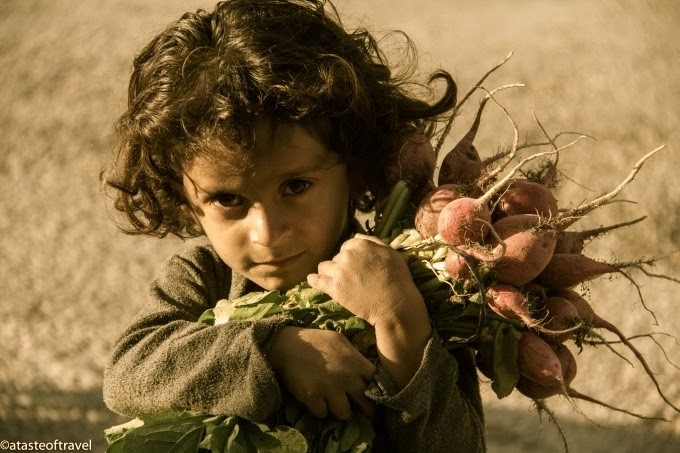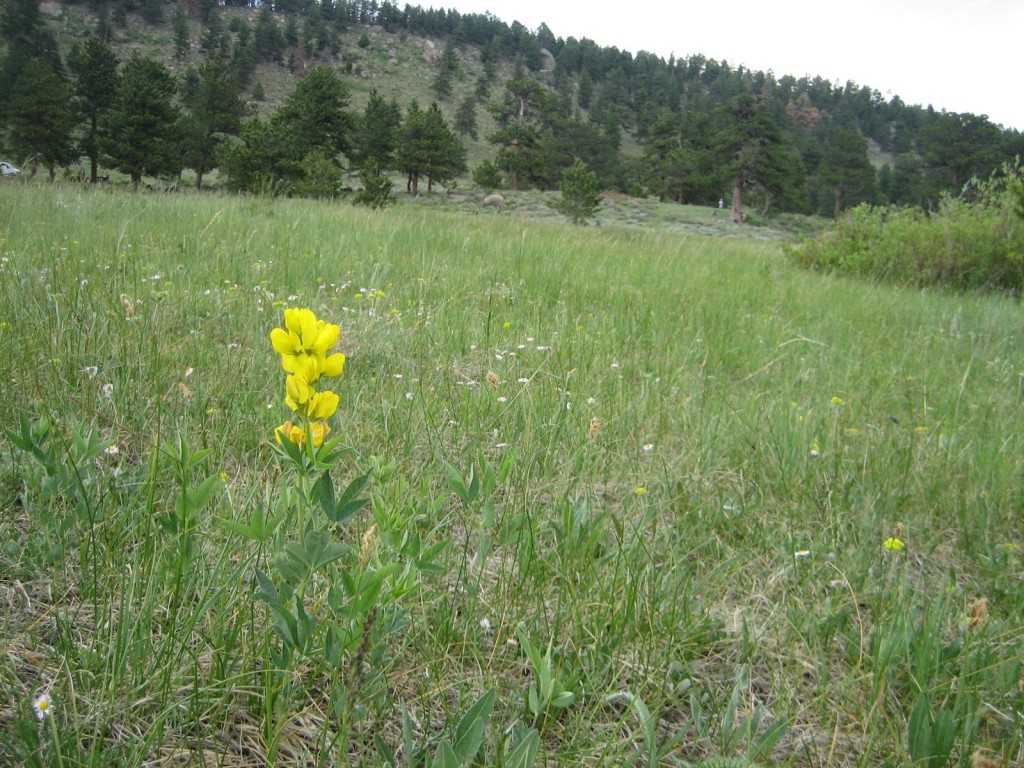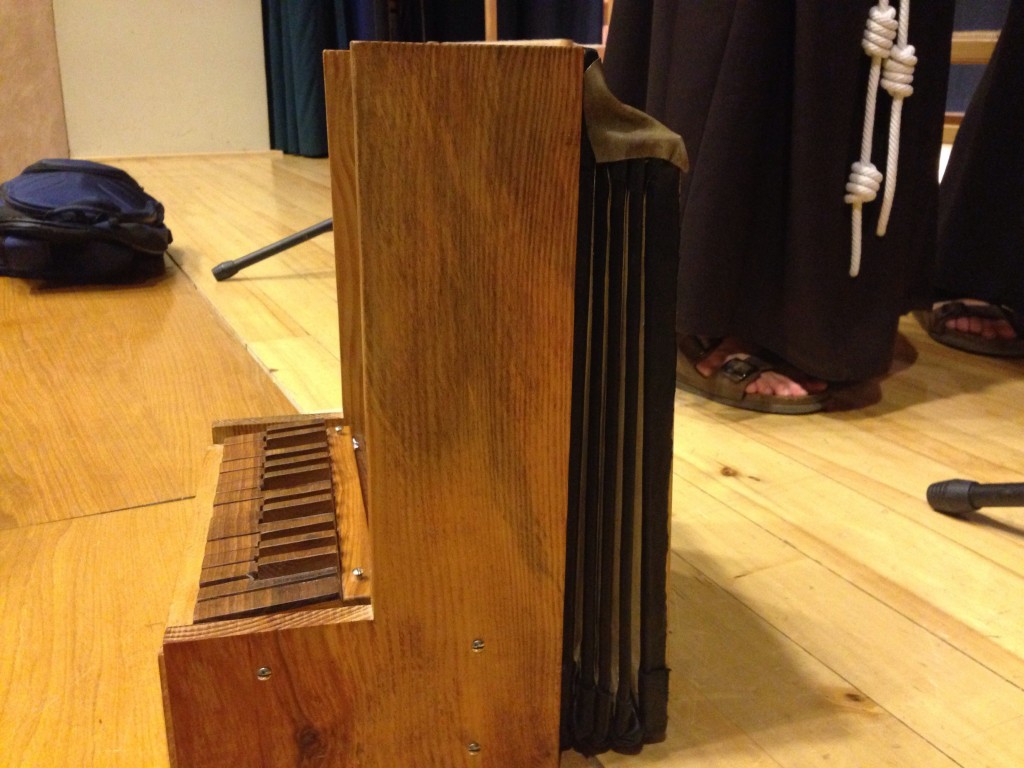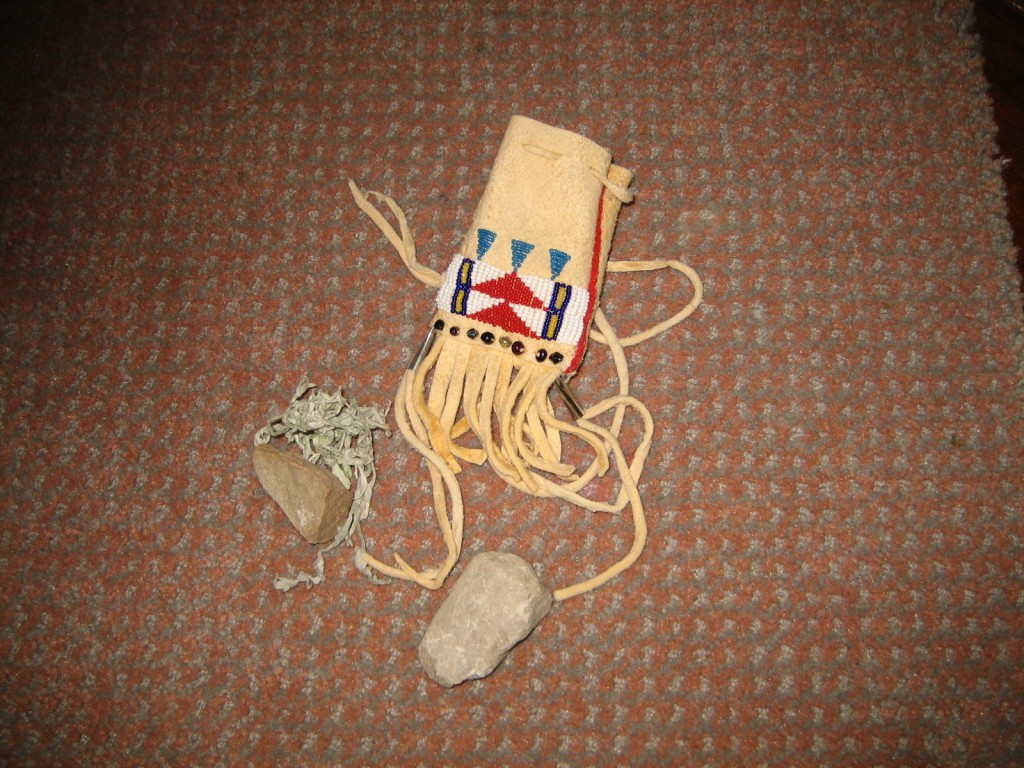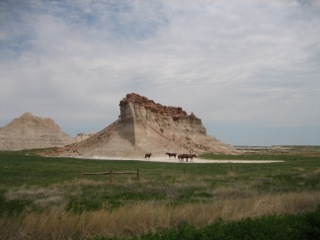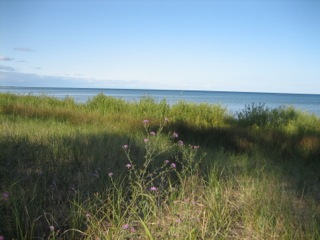May 16th, 2014
On May 6th, I asked members of the listserv to share how they feel and express gratitude. I have compiled the responses (all of them thoughtful and moving reflections) below.
And, since I am a Victorianist and poetry professor at a Jesuit university, this is one of my favorite praise poems, by Victorian Jesuit poet Gerard Manley Hopkins, S.J.
13. Pied Beauty
GLORY be to God for dappled things—
For skies of couple-colour as a brinded cow;
For rose-moles all in stipple upon trout that swim;
Fresh-firecoal chestnut-falls; finches’ wings;
Landscape plotted and pieced—fold, fallow, and plough; 5
And áll trádes, their gear and tackle and trim.
All things counter, original, spare, strange;
Whatever is fickle, freckled (who knows how?)
With swift, slow; sweet, sour; adazzle, dim;
He fathers-forth whose beauty is past change: 10
Praise him.
Mary Tobacco:
I feel gratitude mixed with awe sometimes. I am thankful that the women in my life taught me about love, God, prayer, and faith. I express my gratitude by giving things away. I have always really loved playing basketball and have always felt thankful to have such a gift in my life so when I started winning jackets as a young player I gave them away. I still do.
Mark Benvenuto:
It reminded me that one of the exercises I use is something I picked up down south, when I was one of the rare Catholics in the land of the much more expressive Baptists.
Someone in a cadet prayer group taught us to remember “A.C.T.S.” each day: adoration – acknowledge the greatness of God when compared to yourself; confession – ask forgiveness for your sins; thanksgiving – for all that you have, be it physical, mental, or spiritual; and solicitation – ask the Lord for what you want and need.
I have used it for decades now because it is so easy to remember. And yes, the ‘thanksgiving’ portion has changed a lot over that span of time, but has become quite a list of gratitude items. From thanks for the end of a great semester, back through the years to thanks at getting the job here after the post-doc, back to the thanks as the worries of grad school were overcome, back even to thanks at being alive at the end of another day stationed right up on a now-vanished Soviet border, watching them watching us. ACTS still works well.
Maureen Anthony:
It may be over-used, but I truly find happiness in wanting what I already have. That is the key to happiness.
Sister Sarah Foster:
One of my favorites is a simple song I learned several years ago:
May we always remember where we come from.
May we see the whole in every part.
May God’s Blessings pour down on everyone
And love shine from our hearts.
Ann Greene:
The children’s service in my church uses this rubric: prayers of thanking and prayers of asking. It’s pretty amazing the sense of gratitude expressed by kids in the prayers of thanking.
Judith Hetsler-Parr:
Recommended an incredible TED Talk on the topic of gratitude:
http://www.ted.com/talks/louie_schwartzberg_nature_beauty_gratitude
Jean Gash:
I do not get out of bed in the morning until I think about the things and people in my life that I am blessed with. By the time I greet the day happiness is mine.
Mary Burke (a longtime friend of John Staudenmaier):
Gratitude is a commitment before it is a feeling.
John Staudenmaier:
A saying that helps me: “Gratitude is a commitment before it is a feeling”
A prayer
Give me a grateful heart to live from
Attentive to savor the blessings received
Playful to expect your surprises
Trusting, to commit myself to Your commitment to me.
A principle
Ignatius suggests that every day I consider the inner “movements” of that day but that before I consider, I begin with gratitude for my life as it is now (not as it may become in my future).
Karl Ericson:
Gratitude is the antidote to my fear that I’ll never have enough, that I’ll never get my way, that I’ll be overlooked, or taken advantage of. Gratitude is essential in my daily work to step outside of my ego, my self-centered delusions & recognize that I’m provided for, cared for, valued, and that in this moment I am whole!
Lori Glenn:
I am sharing how I find gratitude, happiness and joy about the work I do with student nurses.
My approach is based on being a midwife, which translates to being a professor in many unexpected parallels. At each phase of development I reflect back as to how far they have come and anticipate the joy the student/mother will experience in the end. We as midwives and professors guide this development by allowing it to occur, but providing the right tools to support them and the knowledge to make it meaningful. We are there when it is hard and they feel vulnerable, and we step back when they begin to soar on their own.
Here are the parallels of being a midwife and professor:
For the developing nurse and the gestating mother:
The time frame is similar–about a year
Student nurse: 13 1/2 months for the new nurse
Mother: 12 months for gestation and postpartum adjustment to parenthood
In the beginning, both
are scared and excited.
ask a lot of questions.
are full of self-doubt.
suffer with low levels of confidence.
are afraid of the process of school/pregnancy they are seeking.
In the middle, as both become accustomed to the demands of the program/pregnancy they
are more comfortable, at ease and calm.
seek their own answers to questions.
become more confident.
have far less fear.
begin taking in the role of nurse/mother.
Towards the end, with increased demands, requiring significant adaptation they both
are impatient for completion.
suffer with mental and physical discomforts.
have a return of fear, for the new role and responsibilities of nurse/mother.
And with the finale, either taking the NCLEX to become an RN, or laboring to become the mother, they
have great pain.
work extremely hard .
have immeasurable joy.
The Second Degree Option Accelerated Nursing program in which I teach is demanding. Students are not only put through a rigorous curriculum with very high expectations, but they also have a lot at stake financially and personally. It is at times difficult to find joy and happiness among all the angst, even though I know the demands we place them barely prepares them for the work of nursing.
Constantly reminding myself that their development will result in great joy in both successfully passing NCLEX and taking on the work of nursing brings me satisfaction and happiness in the work. Seeing them at Transitions Ceremony and Commencement is gratifying, and being notified of successful NCLEX scores and job securement provides me with the opportunity to share their joy.
When I am praying for the patience to continue to expect the best of students, I will miraculously receive an email or visit from a graduate who has become a professional, caring nurse. They express gratitude for the rigor of the program and advise us not to falter in this path. They also thank us for the attention we gave to their emotional needs. This is when I feel most grateful, for I know out their is a UDM graduate who will some day care for myself or a loved one when I am in need.
As far as gratitude being a midwife…this is not difficult to do! And this part of my life enhances gratitude for everything in my life.
My initial post:
The “new science” of happiness, it would seem, confirms many of the things we have known all along. Help other people. Don’t worry too much about the past. Be grateful.
Gratitude does not come to us naturally. One of the tasks of any parent is to cultivate gratitude in our children, to help them recognize the blessings they have been given.
Perhaps this is why saying grace before a meal is one of the oldest and most universal human rituals. In the Quaker tradition in which I was raised, grace is given in silence. Growing up we also said the traditional Moravian grace (a rhyming couplet): “Come Lord Jesus, our guest to be, and bless these gifts bestowed by thee.” I am afraid my brothers and I often recited it so quickly that it had little meaning beyond familiar sounds.
Now that I am a parent, my family has what we call “Gratitude Journal.” My four-year old calls names and we say what we are grateful for in our lives or our day. She always goes last: “I am grateful for everything in the whole entire world!”
One of my favorite examples of grace is from J. S. Woodsworth, a pioneer of social democracy in Canada:
“We are thankful for these and all the good things of life. We recognize that they are a part of our common heritage and come to us through the efforts of our brothers and sisters the world over. What we desire for ourselves, we wish for all. To this end, may we take our share in the world’s work and the world’s struggles.”
I would be grateful to hear how other people on this list feel and express gratitude. Please reply to me individually and I will collect responses to post on the listserv blog.
Mary-Catherine
~~~~~~~~~~~~~~~~~~~~~~~~
Mary-Catherine Harrison, Ph.D.

